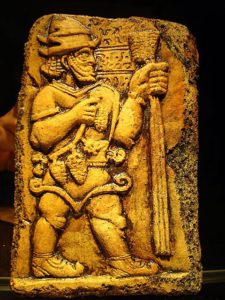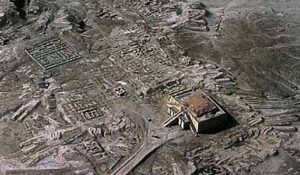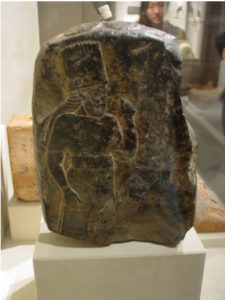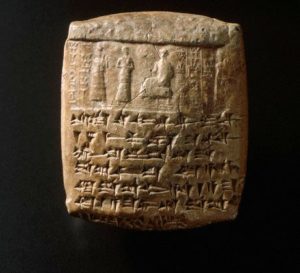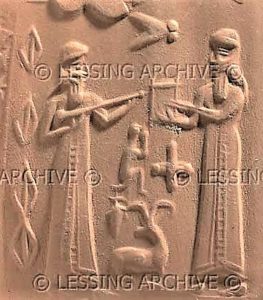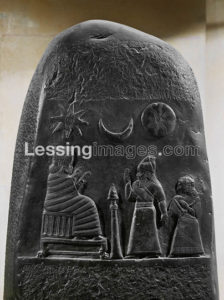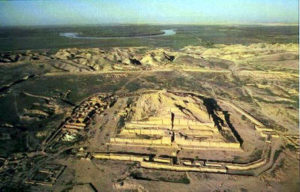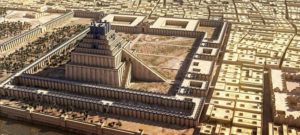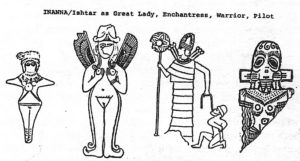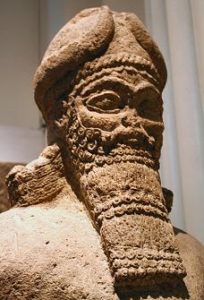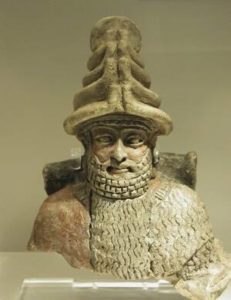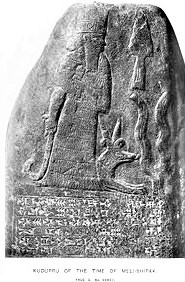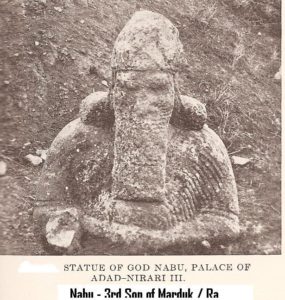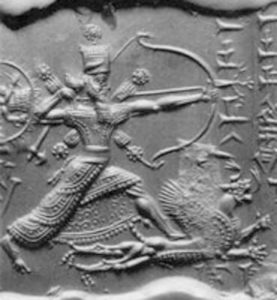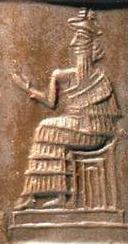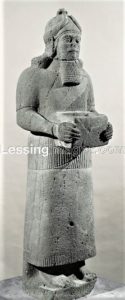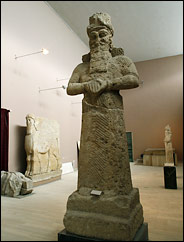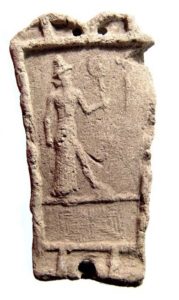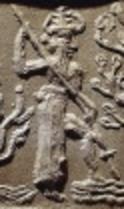(Texts: All Artifacts, Color Coding, & Writings in Bold Type With Italics Inside Parenthesis, are Added by Editor R. Brown, not the Authors, Translators, or Publishers!)
(gods in blue…mixed-breed demigods in teal)
[…] fled, the arms of all those whom the weapon(s) touched became stiff of their own accord,
like (the arms of) those who died of cold; their bodies lay sprawled out.
He (the god Marduk) caused […] to pass above and below (the land),
to the right and the left, in front and behind, like the (very) flood.
He filled the inner city, the suburbs, the steppe, (and) the plain with deathly silence and turned it into a desert.
[(…)], the servant who reveres him, prayerful, obedient, who is constantly attentive for his (Marduk’s) appearance,
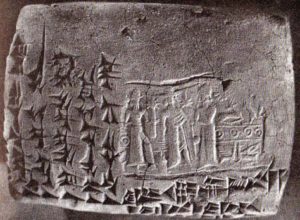 (Marduk, his spouse Sarpanit, & their son Nabu)
(Marduk, his spouse Sarpanit, & their son Nabu)
did not cease praying until he (Marduk) had made him obtain his heart’s desire.
Until I had regarded his lofty figure, so long as dejectedness of heart — (which afflicted me) daily without end —
had not left my body, I did not get enough sleep in the sweet lap of night.
Upon my piteous entreaties, my ardent prayers, my supplication(s),
and my expression(s) of humility by which I daily besought him (and) prayed to him,
in his generous heart he had pity and turned back unto the holy city.
Having made up his mind, when he went out from the wickness in Elam,
going by (way of) city (and) steppe, he took a road of jubilation, a path of rejoicing,
a route (indicating his) attention (to) and acceptance (of my prayers), unto Šuanna (Suzianna) (Babylon).
The people of the land regarded his lofty, fitting, majestic, bright (and) joyful appearance;
all of them paid attention to him.
The lord entered and took up his peaceful abode.
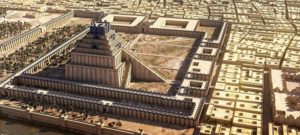 (gates around Marduk’s ziggurat residence)
(gates around Marduk’s ziggurat residence)
Kasulim (“Gate of Radiance”), his lordly shrine, became bright, filled with rejoicing.
The heavens (brought him) their abundance, the earth its yield, the sea its wealth, (and) the mountain its gift.
(People) of all different languages bless him who has no rival.
They brought their weighty tribute to the lord of lords.
Fine sheep were slaughtered (and) prime bulls (provided) in abundance.
Food offerings were lavish (and) incense was burnt.
The armannu-aromatic gave off a sweet fragrance.
A sacrifice […] was made; (the place) was full of rejoicing.
[…] … a celebration took place.
[The gods of hea]ven and earth were looking at the valiant god Marduk with joyful pleasure.
[…] the praise of (his) valour.
[…] makes brilliant the alû-drum and the lilissu-drum.
Colophon on ex. L
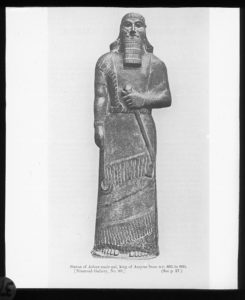 (giant semi-divine mixed-breed Assyrian King Ashurbanipal)
(giant semi-divine mixed-breed Assyrian King Ashurbanipal)
[(… tablet …) Palace of Ashurbanipal, king of the world, kin]g of Assyria,
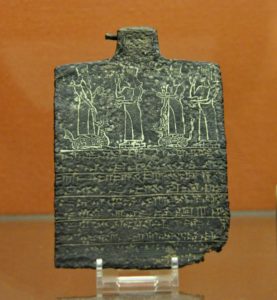 (Marduk, Inanna, Nabu, & spouse Teshmetu / Nanaya)
(Marduk, Inanna, Nabu, & spouse Teshmetu / Nanaya)
[the one on whom the god Nabû and the goddess Tašmētu bestowed broad understanding,
who has sharp eyes (and who learned) the highest level] of scribal art,
[that skill which no one among the kings who had preceded me had learned.
I have written on tablets,
checked, (and) collated] everything pertaining to [cuneiform signs, the art of the god Nabû].
I set (them) up [in] my [palace so that they might be seen and read to me].
Colophon on ex. 2 (rev. 17–18 of exemplar)
[…] … […]
[(Palace (library) of) Ashurbanipal], king of the world, king of [Assyria].
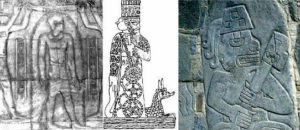
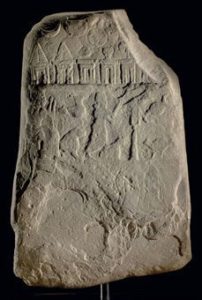
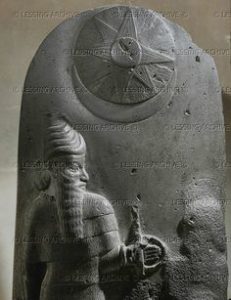
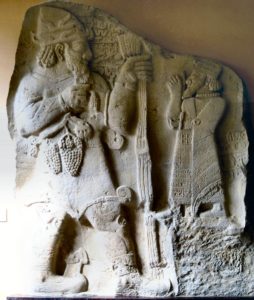
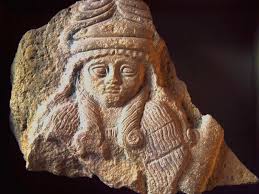
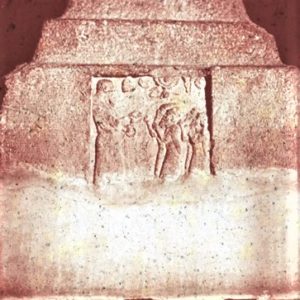
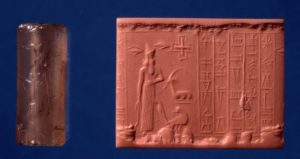
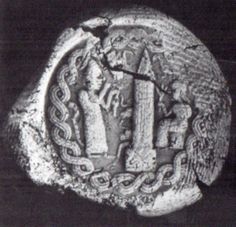
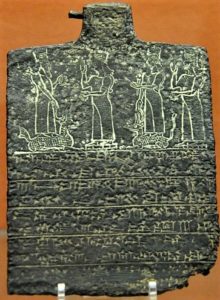
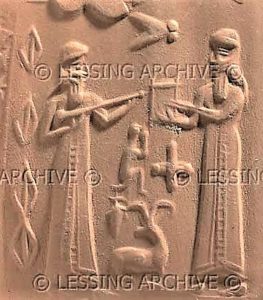

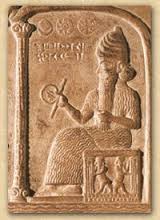
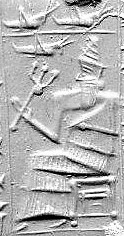
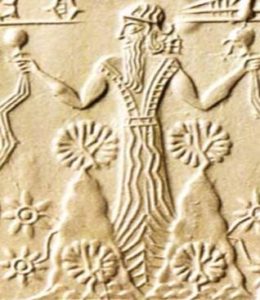
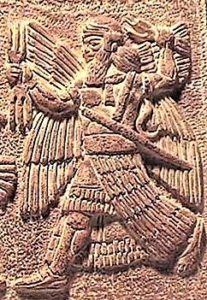
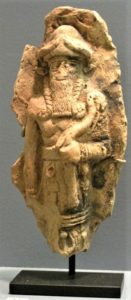
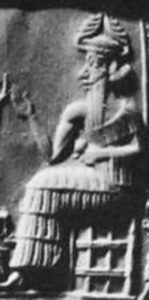
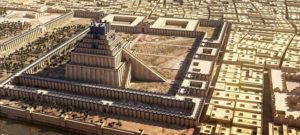
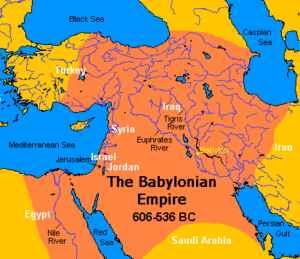
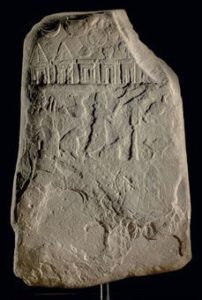 (
(